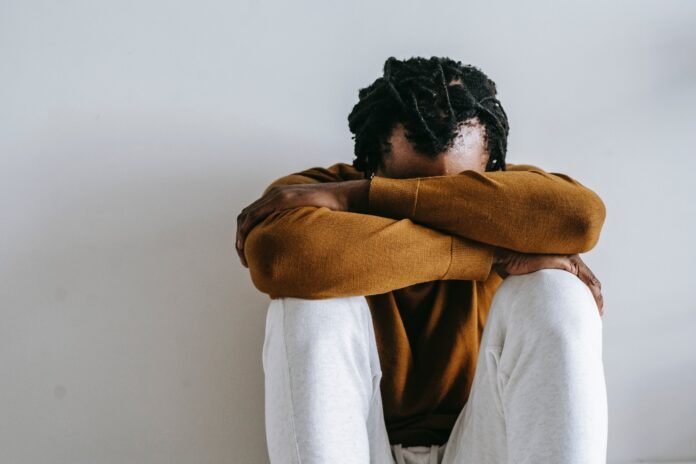
By ReShonda Tate, St. Louis American, Word in Black
The death of Stephen ‘tWitch’ Boss, who ended his life in December 2022, drew attention to the alarming reality that, once considered extremely rare, suicide in the Black community is rising. Suicidal ideation – thoughts of taking one’s own life – and attempts, are becoming even more common.
Researchers are sounding the alarm about the number of young Black men who are dying by suicide. A report published by the Centers for Disease Control and Prevention showed that although the overall rate of suicide in the United States decreased by 3% in 2020 (the latest year stats are available), the rate of suicide increased among many men of color, including Black men.
According to the Suicide Prevention Resource Center, the Black male death rate from suicide is three times greater than for Black women.
“Unfortunately, Black men often suffer in silence,” said Nettie Jones, MS, LPC, a licensed psychotherapist.
“They don’t seek the help that sometimes women will reach out to get. We’ll call our girlfriends, let them know that things are not okay. But unfortunately Black men tend not to do that. They hold things in, they self-medicate, they are workaholics. The kind of do stuff that’s not very healthy.”
Jones said now, more than ever is the opportunity to have discussions around Black men and suicide.
“I am hopeful that this will raise awareness for African American men that they too suffer from depression or times where they really feel low. Hopefully this will start a dialogue, a kitchen conversation that we feel comfortable talking about in our communities,” Jones added.
While rates of suicide and anxiety have risen sharply during the pandemic, a recent study from the journal JAMA finds that suicide attempts have been rising at an alarming rate long before COVID-19.
The study found that Black males had the highest increase in suicide attempts compared to any other race in the group, for example, increasing nearly 80%.
When Cheryl Jackson read the news of musician Ian Alexander Jr.’s death, her heart sank. Not just because she was a big fan of his mother, actress Regina King, but because she had also suffered a similar loss.
“My son was 25 when he took his life. His father and I had no idea he was struggling mentally. And to this day, we have no idea what led him to do something so drastic. He had a new job. He had a girlfriend. As far as we could tell, everything was fine.”
Had it not been for a note he left, she would’ve believed it was foul play.
People know how to mask. Everybody knows how to put that mask on. When you walk out, you put it on. When you come home, for some men, you put it on. And everything is fine until it’s not.
NETTIE JONES, MS, LPC
“He just asked us not to hate him and that he was just tired of the day-to-day struggle. I must’ve screamed at that note for days, ‘what struggle???’ We later learned he had been having bouts of depression, but never told anyone except his best friend,” Jackson said.
Jones says it’s not uncommon for loved ones to miss the signs.
“People know how to mask. Everybody knows how to put that mask on. When you walk out, you put it on. When you come home, for some men, you put it on. And everything is fine until it’s not,” Jones said.
The study authors said young Black men face financial hardship, among other stressors, and may have untreated mental health needs.
“It’s an awful perfect storm of a number of factors,” Alfiee M. Breland-Noble, Ph.D. and founder of the AAKOMA project, said about the reasons behind the upward trend.
Breland-Noble pointed to the fact that young Black men are discriminated against in school and can often be perceived as older than they are.
There is also a lack of Black therapists to speak to young Black men about the hardships they face. No matter how well-meaning a non-Black psychologist is, Breland-Noble said, they can’t relate to the lived experiences of a young Black man.
“They don’t understand the concepts that your family has to deal with, the day-to-day stressors. They don’t understand racial trauma, they don’t understand racism-induced stress,” Breland-Noble said.
Jones said it’s imperative that we give Black men the forum to talk.
“The more we talk about it, the more we normalize the conversation,” she said.
Dispelling myths is also key.
“Asking someone if they are suicidal will not increase the risk that they will die by suicide,” said Wilson. Inquiring about potential self-harm in a compassionate way may instead provide an opportunity for the person to express their feelings and reach out for help.
____
This post was originally published on St. Louis American


